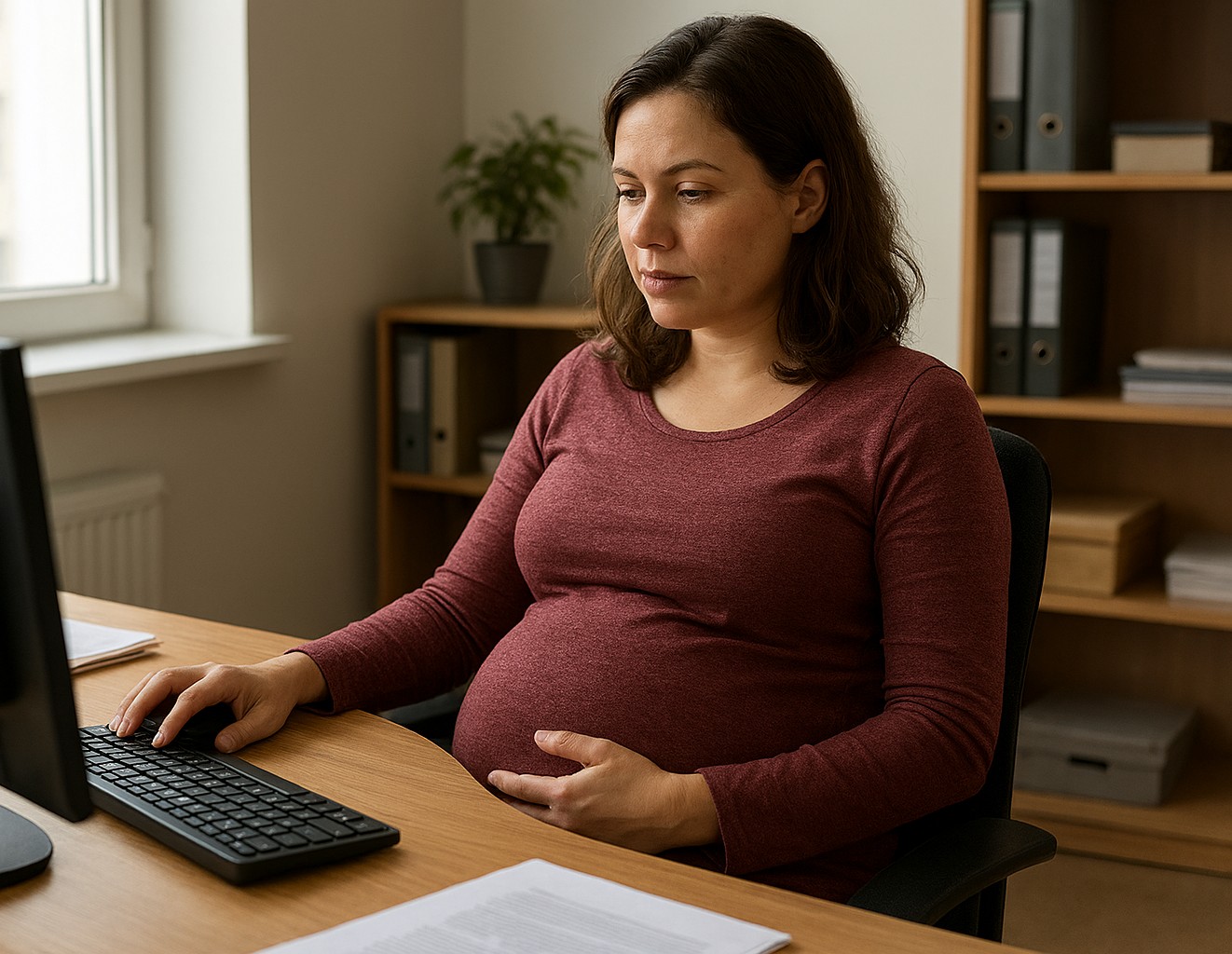Your Rights While Pregnant at Work

Here’s our in-depth, plain-language guide to your rights when you're pregnant at work under the Fair Work Act and other national protections:
What are my rights when I’m pregnant at work?
Being pregnant doesn’t limit your value at work—and the law (and us!) have your back on that. Pregnancy is protected under the law. Your employer has to treat you fairly, keep you safe, and give you access to leave and flexibility if you need it.
You can’t be discriminated against because you’re pregnant.
It’s illegal for your employer to:
- Demote you
- Cut your hours or responsibilities
- Exclude you from training or promotion
- Pressure you to resign
- Dismiss you because of your pregnancy, planned leave, or family responsibilities
Protected under:
- Fair Work Act (general protections)
- Sex Discrimination Act (pregnancy and parental status discrimination)
🚩 If things suddenly change after you announce your pregnancy, document it—you may have a legal claim.
You’re entitled to unpaid parental leave.
If you’ve worked for your employer for at least 12 months before your expected due date, you can take:
- 12 months of unpaid parental leave
- The right to request an extra 12 months leave (your employer must seriously consider it)
- Leave can start up to 6 weeks before your due date
You can also take flexible unpaid parental leave days (up to 30 days within 2 years of the birth), even if you return to work part-time.
You may get Paid Parental Leave from the government.
This is separate from your job. If you meet eligibility criteria, Services Australia may pay:
- 24 weeks of parental leave pay (increasing to 26 weeks in July 2026)
- Paid at the national minimum wage
- May be split between both parents (shared care)
Note: You can receive this while on unpaid leave from work.
You have the right to transfer to a safe job.
If it’s unsafe for you to keep doing your usual work and:
- You’re fit to work but need adjustments,
- And your job puts your health or the baby’s health at risk,
You have the right to be transferred to a safe job, on the same pay and conditions.
If no safe job exists, and you're eligible for unpaid parental leave, you can take “no safe job leave”—fully paid if you're entitled to parental leave. (You may need a medical certificate confirming the risk)

You can take personal leave if you’re unwell.
Pregnancy-related illness is treated like any other illness.
- You can use paid personal/carer’s leave (sick leave) if you’re too unwell to work due to pregnancy (e.g. severe morning sickness, pregnancy complications).
- You can’t be penalised for this.
You’re protected while on parental leave.
While on leave, you still:
- Accrue annual and sick leave as normal
- May be eligible for redundancy pay if your role is made redundant
- Can’t be removed from your job just because you’re away
You have the right to return to your job after parental leave. If your role no longer exists, you must be offered a comparable role in pay and status.
You can request flexible work after the baby arrives.
Parents of a child under school age (or under 18 with a disability) have the right to request flexible working arrangements, including:
- Part-time hours
- Job sharing
- Remote work
- Flexible start/finish times
Your employer must respond in writing within 21 days and can only refuse on reasonable business grounds.
What to do now:
- Let your employer know in writing at least 10 weeks before you plan to start leave
- Include your expected due date, leave start date, and how long you want off
- Ask for any workplace policies they have on parental leave or flexible work
- Get medical certificates if you're seeking a safe job transfer or need time off
- Document any changes in how you're treated once your pregnancy becomes known
- Reach out if you need support
Other Posts You May Like...
Lorem ipsum dolor sit amet, consectetur adipiscing elit.

